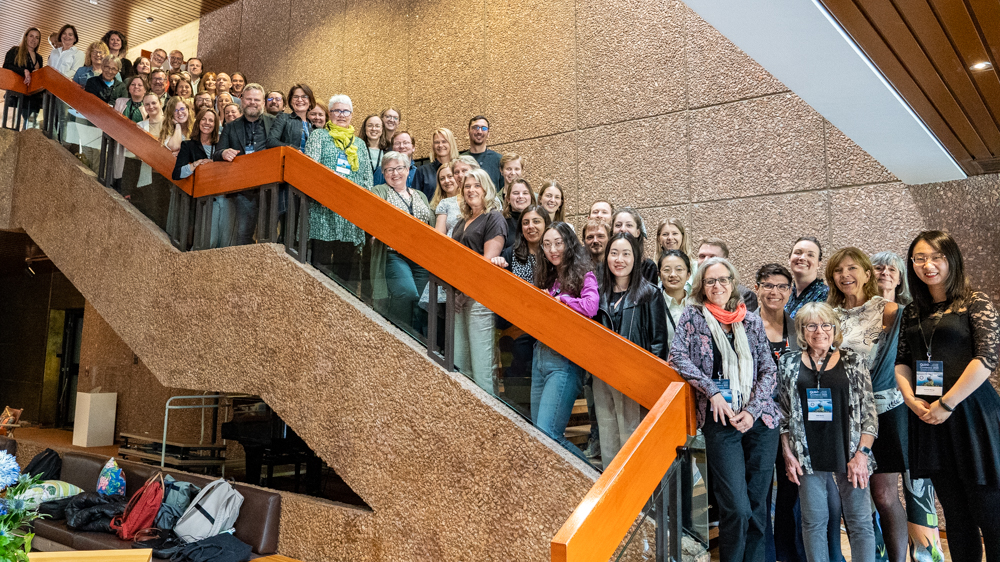Short summary
In addition to international researchers in the field of education, this year’s conference also invited Nordic teacher union leaders, education professionals and PhD students from across the Nordics and beyond, to share their perspectives on the main theme of the conference – namely how to strengthen and facilitate partnerships between teachers and researchers.
The four-day event comprised of ten parallel paper sessions, five symposiums, three keynote presentations and plenary discussions, an invited workshop, a panel debate with the Nordic Teacher union presidents, and a workshop with education professionals from the Nordic countries.
There was broad agreement amongst conference delegates on the need to continue to find productive ways to bridge the researcher-educator gap, particularly in professional development contexts.
PhD Summer Institute – Tomorrow’s researchers put their best foot forward
The four-day summit in Helsinki began with a two-day PhD Summer Institute. Over 30 Doctoral candidates from the Nordics, Germany, the Netherlands, Switzerland, UK, USA, and New Zealand, presented their research and engaged in discussions with each other, as well as with top researchers from the field.
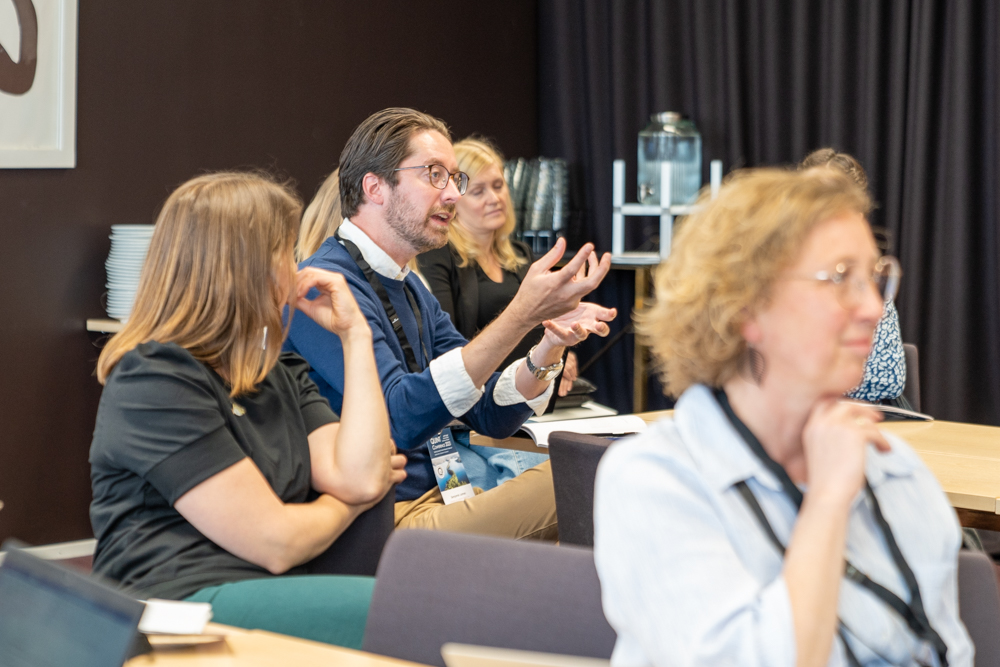
26 papers were presented across the two days with topics ranging from analysis of teaching quality through classroom observations, subject specific research, enhancing quality in teacher education practices, and quality in professional development efforts. With example cases from different countries, contexts, settings and observations, there was a wide variety of perspectives on display.
“QUINT’s Summer Institutes show high standard of researchers, but this year’s conference has especially impressed with the quality of the papers and presentations. We in the centre’s leadership are encouraged by the upcoming generation of early career researchers in the field of education and teaching quality” said QUINT Director Kirsti Klette.
Click here for a full list of papers, including links to abstracts.
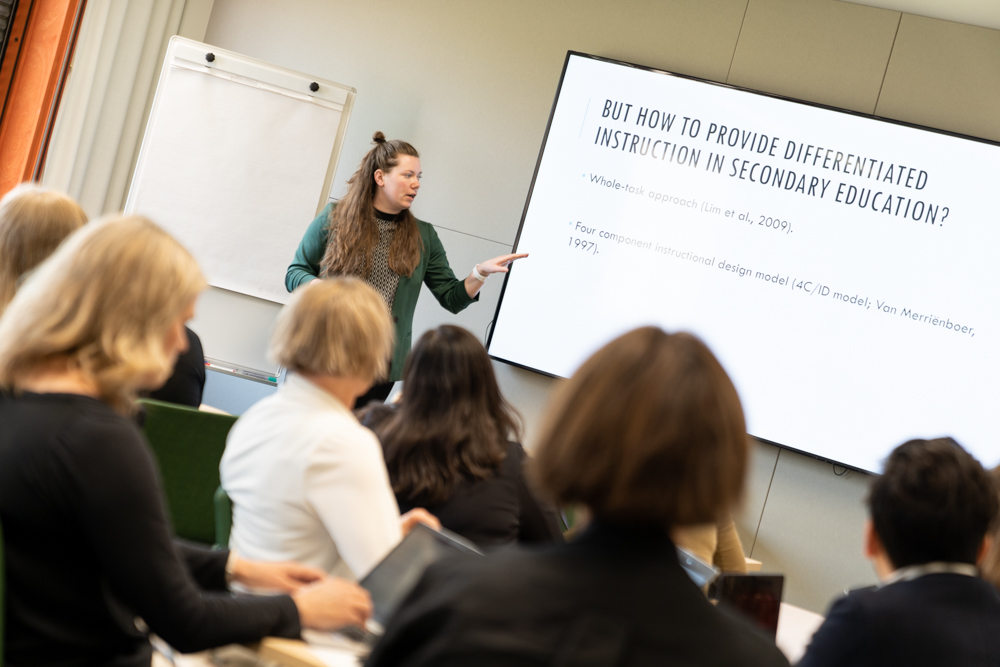
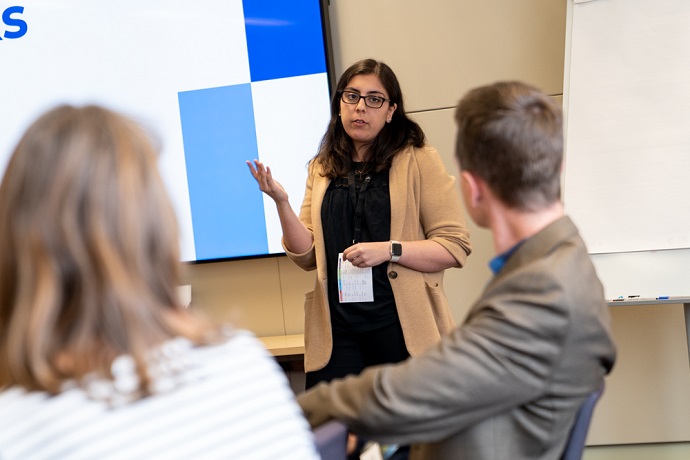
Keynotes – Leading researchers share their insights
High-profile international keynote speakers discussed their work with teacher education and professional development as part of the PhD Summer Institute and the general part of the conference. Across the board, these speakers saw a need for making more space for teachers’ needs and perspectives in education research and professional development.
Centring teachers’ voices
As part of the PhD Summer Institute and her talk to PhD Fellows, Professor Rosella Santagata emphasised the importance of centring teachers’ voices in teacher education and research. Santagata’s work with research-practice partnerships in teacher education aims to take into account the structural contexts that teachers find themselves in, such as the norms and regulations of school districts, and different groups or communities within the school.
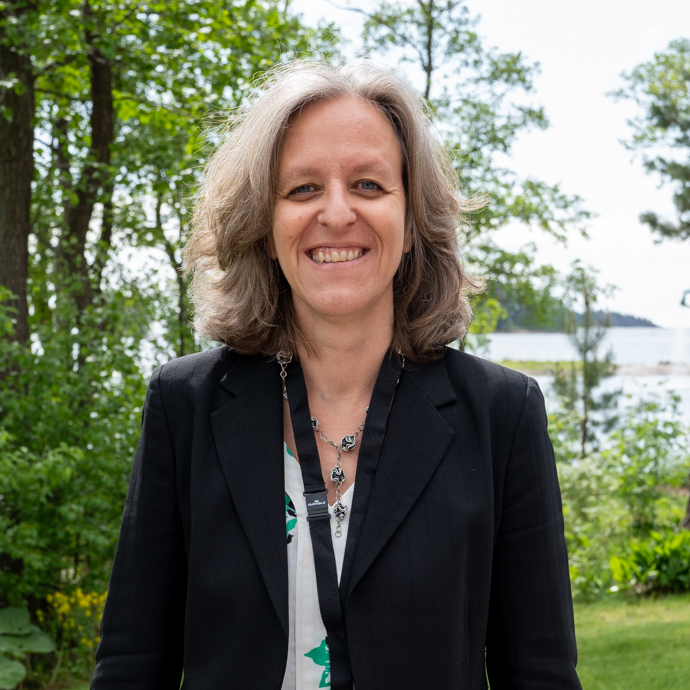
“Our research-practice partnerships focus exclusively on connecting different forms of expertise in the system and on shifting power relationships. So it's really a different way of conducting research with teachers as opposed to on teachers”, said Santagata during her talk.
Santagata and colleagues from continually adapt the design of their professional development program based on feedback from teachers. They have identified what they see as three key levers for supporting teacher learning and improvement in classrooms. These are 1) Disrupting hierarchies, where stakeholders are able to discuss on equal footing and learn from each other 2) Centring learning, not only for students but for adults too (teachers, administrators, researchers etc.) and 3) Building relationships and trust, taking the time listen to what practice partners have to say and learning from it.
Santagata also discussed the use of video to improve teaching quality, emphasising the importance of the social-cultural context in which videos are viewed. She argued for the need to bring different ‘professional visions’ to classroom videos in order to co-create a shared view of what is important to look for, and to agree on future goals for research.
Santagata also talked about teacher noticing in a professional development context, demonstrating several promising ways that video can be used for inquiry together with teachers, to help them notice relevant aspects of classroom activity. She argued that more research is needed about teacher noticing.
Measurement for improved feedback
Professor Robert Coe presented the work he has done as Director of Research for Evidence Based Education in trying to improving the reliability of feedback given to teachers who undergo training programs.
Coe discussed how the difficulty of measuring teaching quality influences the work of improving teaching quality. Drawing on White et al (2021), Coe emphasised that measuring quality, and therefore tracking improvement in a teacher’s practice, is very difficult to do reliably.
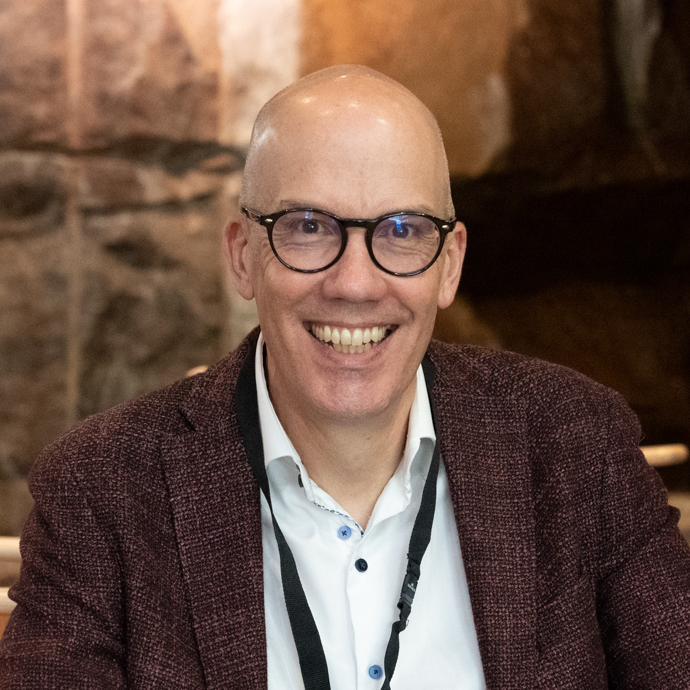
“If you know anything about measurement, you'll know that the difference between [two measurements] is far less reliable than either one on its own [...] It's like the child who wants to constantly measure their height and finds they've gone down. It's error of measurement, not genuine shrinkage.”
Coe is using Comparative Judgement on classroom video clips to try to overcome some of the challenges associated with measurement reliability. Comparative Judgement is a technique where a rater compares two artefacts (in this case, two video clips) against each other and decides which one is better. As this is done enough times and with enough videos and enough raters, the reliability of each video’s rating improves.
This method comprises part of Evidence Based Education’s suite of tools, which are designed to support teachers see their classroom practices more objectively.
Breaking the fourth wall
Dr. Sarah Kavanagh discussed her research on practice-based learning for teachers. She argued that there is a need for bringing teacher learners (teachers in training) closer to practice during their training.
Kavanagh used the concept of the fourth wall from theatre and film to illustrate the gap that currently exists between the teacher learners and classroom practice.
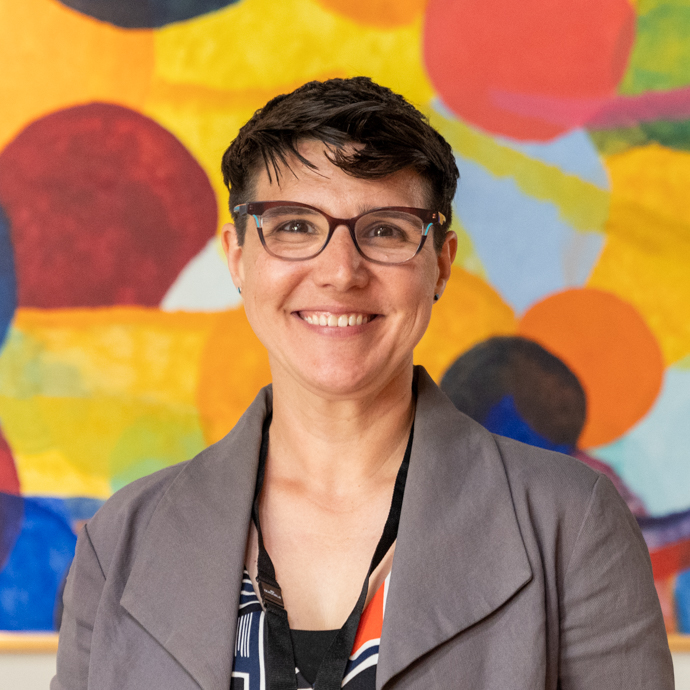
“Even in the most collaborative, practice-centred teacher learning experiences, there remains a very strong cultural boundary between performers of teaching and observers of teaching.”
Kavanagh has been conducting research that looks at ways to bring teaching learners closer to practice, and argued for the potential that lies in breaking the boundary between performer and observer in classroom practice contexts.
Though still in the early phases, Kavanagh cited indications from her research that ‘breaking the 4th wall’ during practice training can lead to promising outcomes. When teachers and teacher trainers allowed themselves to step out of the roles of ‘practitioner’ and ‘observer’, Kavanagh said, they were able to work collaboratively to solve challenges that had arisen during the course of the lesion.
Kavanagh hopes that this work can challenge entrenched assumptions about how to conduct teacher training.
“The assumption has been that being together in real time instruction will interfere with teacher learning. […] My hope is that this work can help prompt some questions in the field about what it will take to adapt our infrastructures for teacher learning in ways that might more frequently bring teachers together to authentically and collaboratively participate in the practice of teaching for the purpose of learning about teaching.”
Invited Workshop – Partnership Research in Education, with Professor Hilda Borko
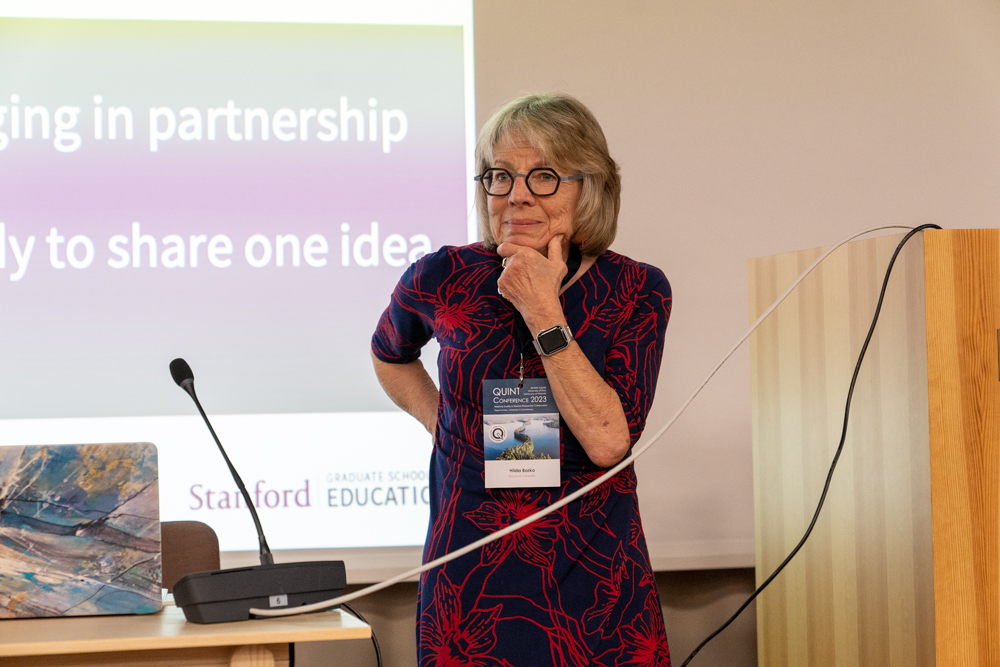
On the second day of the summit, Stanford professor Hilda Borko held a combined keynote and workshop on partnership research.
Professor Borko began with an overview of her work on professional development and capacity building within mathematics and science at the school district level in the US. She also discussed what ‘practice partnership’ means in this context. Borko underlined that practice partnerships include engagement with research, not just professional development activities, and that they “bring together diverse forms of expertise, attempt to shift power relations and to give all participants a voice in the work”.
The discussion then moved on to an examination of the challenges and benefits of partnership work. Workshop participants represented by researchers, research administrators and education practitioners were asked to discuss a number of questions about practice partnership, looking at both the challenges and benefits.
One theme that emerged from this discussion was the challenges associated with working across the different ‘cultural worlds’ that exist in academia and schools.
“We live in really different cultural worlds, different ways of working together, different incentive systems, different priorities. That just comes with the territory. One of the big things is that practitioners need to get things done tomorrow. And as researchers, we keep learning that it's all about in depth, it's all about quality, so take your time, make sure you know what you're learning and that you're ready to share it. Those [priorities] don't always mesh well.”
Professor Borko rounded off the nearly 2-hours of engaged discussions among the workshop participants of with some reflections on the “Building the Field” project. The project set out to develop a framework for the knowledge, skills and dispositions needed to do partnership work in the school sector.
Through a long process the working group for the Building the Field project eventually moved away from the idea of centring knowledge, skills and dispositions to what Borko described as a broader and more inclusive framework.
“One of the realizations that led us to this [new] framework is that knowledge, skills and dispositions are all about the individual, while partnerships are inherently not about the individual. […] The issue of context also kept coming up, and the importance of infrastructure in contexts, which is not part of knowledge, skills and dispositions either. So we just decided that our initial framing was wrong, and that this was a framework much more able to support partnership work.”
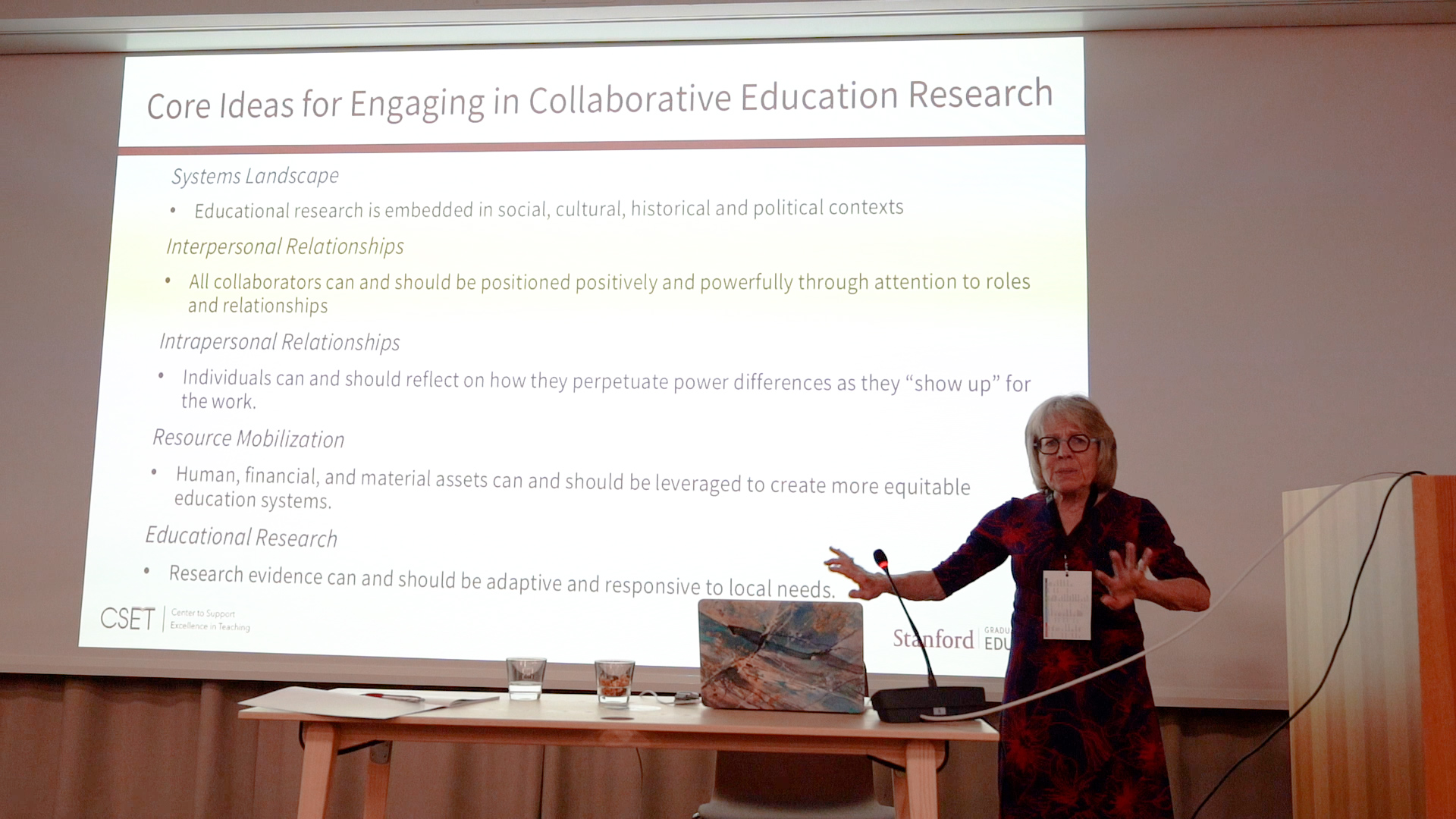
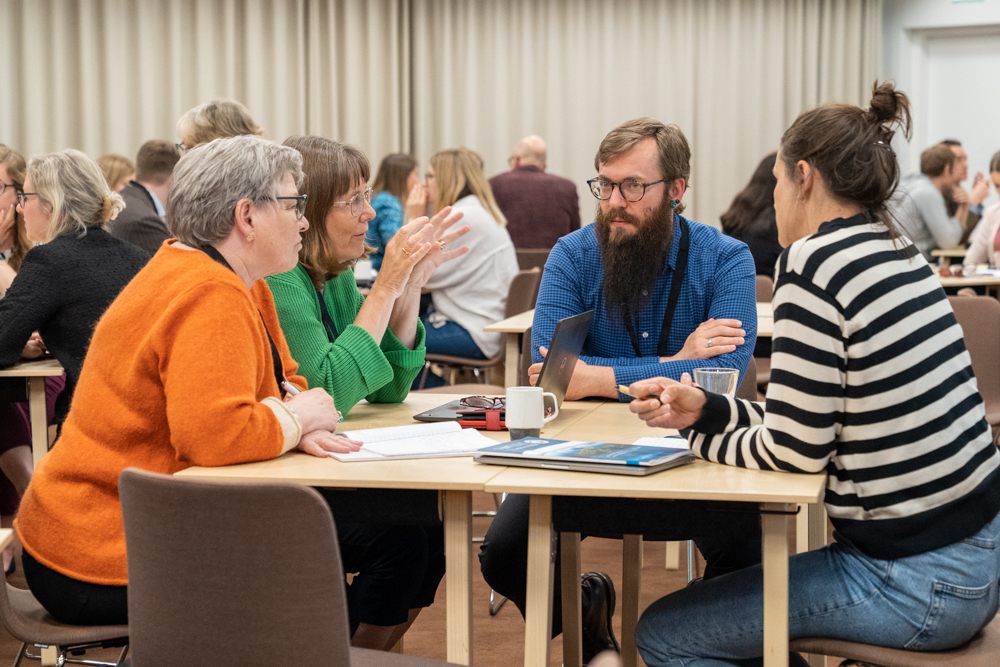
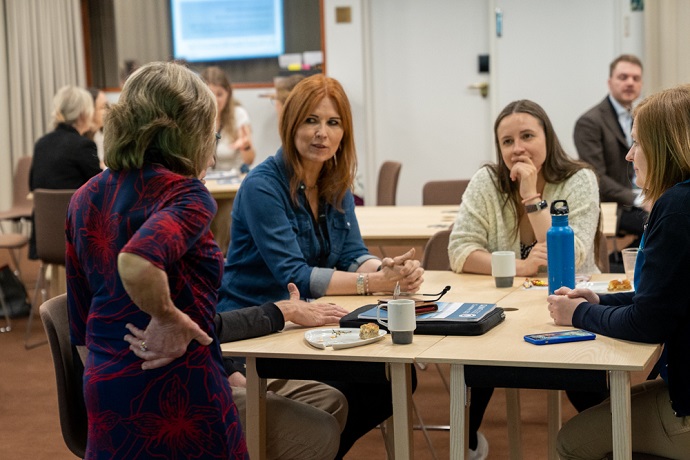
Panel discussion – Nordic teacher union presidents call for more collaboration
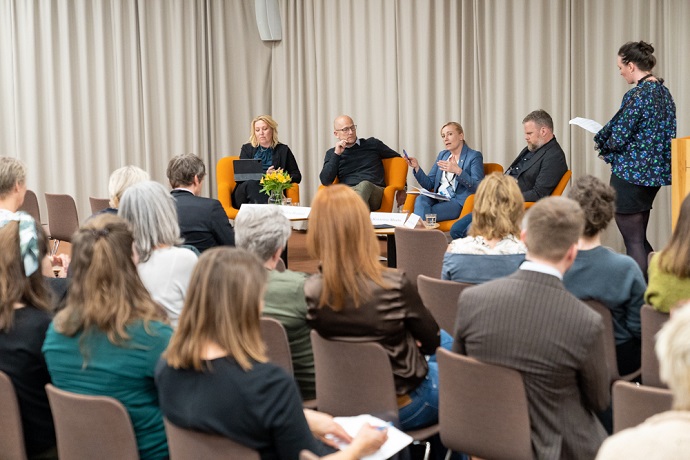
The teacher union leaders from Norway, Iceland, Finland and Sweden joined each other for a panel discussion on the challenges and opportunities facing the school sector in the Nordics, with a particular focus on teacher-researcher collaboration. The discussion was led by QUINT Deputy Director Professor Marte Blikstad-Balas, University of Oslo.
The panellists shared many of the same concerns about the challenges facing schools in the Nordic countries, the first of which was lack of funding for education. They also discussed the challenges posed by current social and technological developments; AI, general challenges to democracy and a general and increasing teacher shortage
The panellists shared a positive view on teacher-researcher collaboration, but wanted to see more of it, as well as improvements to the effectiveness of these collaborations.
“We need the research to be closer to what teachers are talking about, what they are thinking about, what their problems are,” said Steffen Handal, leader of the Norwegian Teachers’ Union.
It was clear from the discussion that Nordic teacher unions see the value in education research, but also feel that there is too much distance between the research sector and the school sector. They called for closer cooperation between practitioners and researchers, and challenged both sides of the divide to make greater efforts to reach out to the other.
Workshop – Teachers and researchers meet inside “the fishbowl”
In keeping with the theme of this year’s conference, teachers and researchers from Nordic countries were invited to participate in a so-called ‘fishbowl’ conversation with each other.
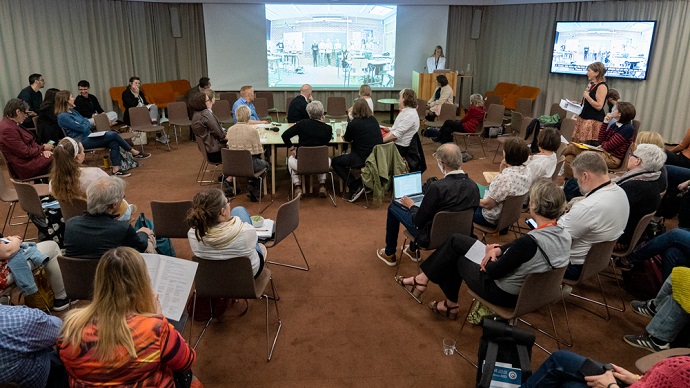
The conference room was organised into two circles; the inner circle comprised of secondary teachers from Denmark, Norway, Finland, Sweden and Iceland as well as QUINT researchers from Iceland, Denmark, Norway and Sweden (full list below). This inner circle was tasked with discussing a video clip taken from the LISA Nordic project, which showed an example of instruction in Nordic classroom.
The floor was then opened to the outer circle, comprised of the reset of the conference delegates, mainly researchers, for a full-group discussion. This process was repeated for each of the three video clips from different countries and subjects.
PhD Fellow Gøril Brataas from University of Oslo facilitated the discussion, along with QUINT Centre Director and principle investigator of the LISA project Kirsti Klette, who filled in for Associate Professor Inga Staal Jenset of the University of Oslo and co-leader for Theme 4 at QUINT.
“One of the things I like about this method” said Brataas “is that those of you in the outer circle have time to actively listen. You have time to take notes, to reflect upon what they are saying [in the inner circle], how they are talking together, and to prepare what you want to add to the conversation afterwards.” The format of this workshop is inspired by a kind of dialogue - fishbowl conversation, which is often used by teachers.
An important component of the exercise was that participants could speak freely and ‘off the record,’ but sufficed to say there was a lively and fruitful back-and-fourth, both within the two circles and between them. During the discussion one teacher commented, “I think it’s important for a conference like this that the teachers’ voices get to be heard.”
Participants
Teachers:
Guðríður Sveinsdóttir (IS)
Jeanette Lola Gregersen (DK)
(Sofia Henriksson (FI))
Thorbjørn Anvik (NO)
Sofie Jensen (NO)
Elisabeth Savefjord (SE)
Britta Öster Jonasson (SE)
Researchers:
Anna Kristín Sigurðardóttir (IS)
Anders Stig Christensen (DK)
Alexander Jonas Viktor Selling (NO)
Michael Tengberg (SE)
Photo gallery
Related material
- "What is the future of teacher-researcher collaboration?" an interview with the keynotes from this year's QUINT conference
- Summary from the 2022 QUINT PhD Summer Institute & Conference
This event is partially funded by Hanaholmen cultural centre
Hanaholmen – the Swedish-Finnish Cultural Centre works to develop co-operation between the countries in all areas of society.
